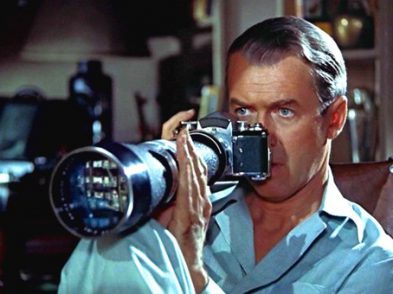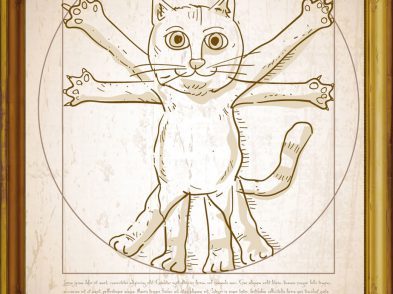Totò, one of the best loved Italian comedians of all time, was born in Naples as Antonio Vincenzo Clemente on February 15, 1898, in the heart of poverty-ridden Rione Sanità. He went by his mother’s surname until 1921, when Marquis De Curtis, the young heir of a penniless noble family married Anna Clemente and recognized Totò as his natural son. This was the first rung in Totò’s long ascent towards social recognition and status-based prestige a climb that charac-terized him throughout his entire life. Totò was, in fact, well-known for having what we might call ‘the nobody’s son complex.’ His greatest desire was to be recognized by the world as a person of noble descent, and he spent his entire life looking for ways to earn a variety of unthinkable ti-tles. Totò would either purchase ownership outright or ‘come across’ titles by befriending old nobles who were willing to ‘adopt’ him. That was how it came to be that Totò, born as Antonio Vincenzo Clemente, went to his grave in 1967 as Antonio Griffo Focas Flavio Angelo, Ducas Comneno Porfirogenito Gagliardi De Curtis of Bisanzio, His Imperial Highness, Count Palatino, Knight of the Holy Roman Empire, Esarca di Ravenna, Duke of Macedonia and Illiria, Prince of Constantinople, of Cicilia, of Tessaglia, of Ponto, of Moldavia, of Dardania, of Peloponneso, Count of Cipress and Epiro, Count and Duke of Drivasto and Duraz.
Totò’s career started in the wings of the Avanspettacolo, a minor genre of pre-show theatre very much in vogue in the 1930s, which amounted to a half hour of semi-improvisational comedy skits performed by a small theatre troupe within the cinema before the start of the film. The success Totò achieved was enormous and immediate, and he was promptly noticed by film pro-ducers who fought tooth and nail to have him in their respective casts. To put it simply, Totò’s presence guaranteed the success of every film in which he appeared. His brand of comedy was the straightforward humour of the clown—the kind capable of inspiring rolling laughter from the common folk, and help them forget their constant fight for basic survival. Totò has often been compared to none other than Charlie Chaplin, due perhaps to his uncanny ability to tread lightly among the ruins of humanity and make it safely to the other side.
In the majority of his films, Totò loved to perform in the company of actors who could carry the brunt of his quips and exalt his comedy style—a unique alchemy of body mime and facial ex-pression, supported by an incredible capacity for candid improvisation. Great Italian actors like Aldo Fabrizi, Peppino di Filippo and Nino Taranto were just some of his most famous ‘straight men,’ and all have told how Totò would delight in turning the script upside-down during filming, revolutionizing both lines and timing. If you weren’t a great actor, there was simply no way you could work with him.
His enormous success also had its down side, spurring the actor to interpret more than 100 films throughout the course of his career—many of which he openly called ‘bad’ movies, filmed quickly with sparse scenery and meagre funds. But all it took was Totò’s presence, able impro-viser and incredible ‘mask’ that he was, to propel any B-movie to success. Many of his films were criticized by intellectuals of the moment, who complained that his movies harmed Italy’s image abroad by portraying Italians as trivial, infantile and unforgivably superficial.
Totò never refused anyone; this was both a measure of his greatness and his only true fault. He was prone to accept any job offer and his reasons were said to be two-fold. He took on all proposals partly out of greed and love of money—a vice that he never really tried to hide— and partly thanks to his good-natured enthusiasm for any project. Several versions of the story persist. There are those who speak of Totò as a stingy money-loving man; others report that often after a show he would go into alleyways alone and give a thousand-lire bill to street children. (At the time, mille lire were equivalent to a month’s salary.)
But not only did Totò make films in mass quantity; he also produced a series of very high quality movies. Pierpaolo Pasolini, Roberto Rossellini, Dino Risi, Alberto Lattuada, Vittorio De Sica, and Mario Monicelli are just some of the important Italian directors who worked with Totò to cre-ate authentic masterpieces of Italian comedy, such as Guardie e Ladri, Dov’è la libertà, L’oro di Napoli, and Uccellacci e Uccellini.
Totò was also a great poet who wrote in dialect, and an outstanding song-writer, composing both the music and lyrics of his pieces. There are few Italians who do not recognize his infamous song ‘Malafemmena,’ composed and dedicated to the actress Silvana Pampanini whom he fell in love with while filming 47morto che parla.
Though sick and almost blind, Antonio De Curtis worked as an actor up until just a few days be-fore his death in Rome, on April 17, 1967. He undoubtedly hoped for a simple funeral, but the day his corpse was transferred from Rome to Naples for burial, it was met at the highway exit by a sea of people who had come from every corner of Italy to pay homage to the Prince Antonio De Curtis, known on the silver screen as, simply, Totò.





